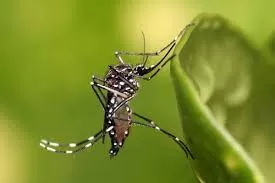In the ongoing battle against mosquito-borne diseases, researchers have made a significant breakthrough with the development of molecular probes that target the unique digestive system of Aedes aegypti, one of the world’s most dangerous mosquitoes.
Published in the Journal of the American Chemical Society, the research highlights the urgent need for innovative insecticides as traditional methods prove increasingly ineffective against mosquitoes developing resistances.
Led by Michael Riehle, John Jewett, and their team, the study focuses on exploiting the distinct alkaline environment of Ae. aegypti’s midgut. Unlike other mosquitoes, Ae. aegypti exhibits a pH spike at the beginning of its midgut, creating an alkaline region that transitions to a more neutral environment during digestion. This unique characteristic provided the researchers with an opportunity to develop molecular probes that specifically target this alkaline portion of the midgut.
The team synthesized two base-reactive molecules along with a control molecule for their test probes. These probes were introduced to groups of mosquito larvae, which ingested them via filter feeding. As the larvae passed the probes through their digestive systems, the two base-reactive molecules underwent chemical changes in the alkaline midgut, allowing them to bind to proteins and emit fluorescence. In contrast, larvae ingesting the control molecule did not exhibit fluorescence.
According to the researchers, these molecular probes create targets within the larval gut that could potentially be used to develop new insecticides. By specifically targeting the alkaline environment of Ae. aegypti’s midgut, future insecticides could minimize side effects on other organisms with neutral or acidic digestive systems, making them highly specific and effective against mosquito vectors.
The implications of this research extend beyond Ae. aegypti to other mosquito species and the diseases they transmit, including malaria, Zika virus, and dengue fever. By developing insecticides that are resilient to resistance and highly specific to their target, scientists hope to curb the spread of these deadly diseases.
Funding for the study was provided by the National Science Foundation, the 2023 Technology Research Initiative Fund, and the National Institutes of Health, underscoring the collaborative effort and importance of continued research in combating mosquito-borne illnesses.











